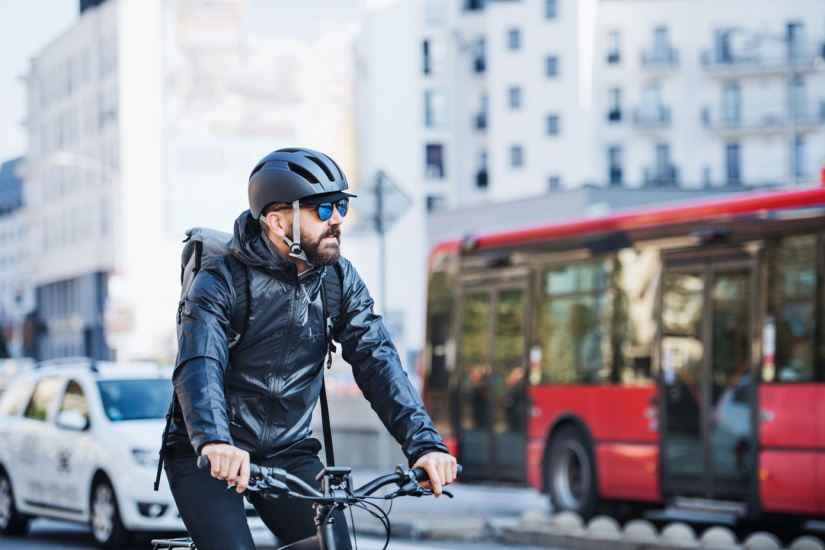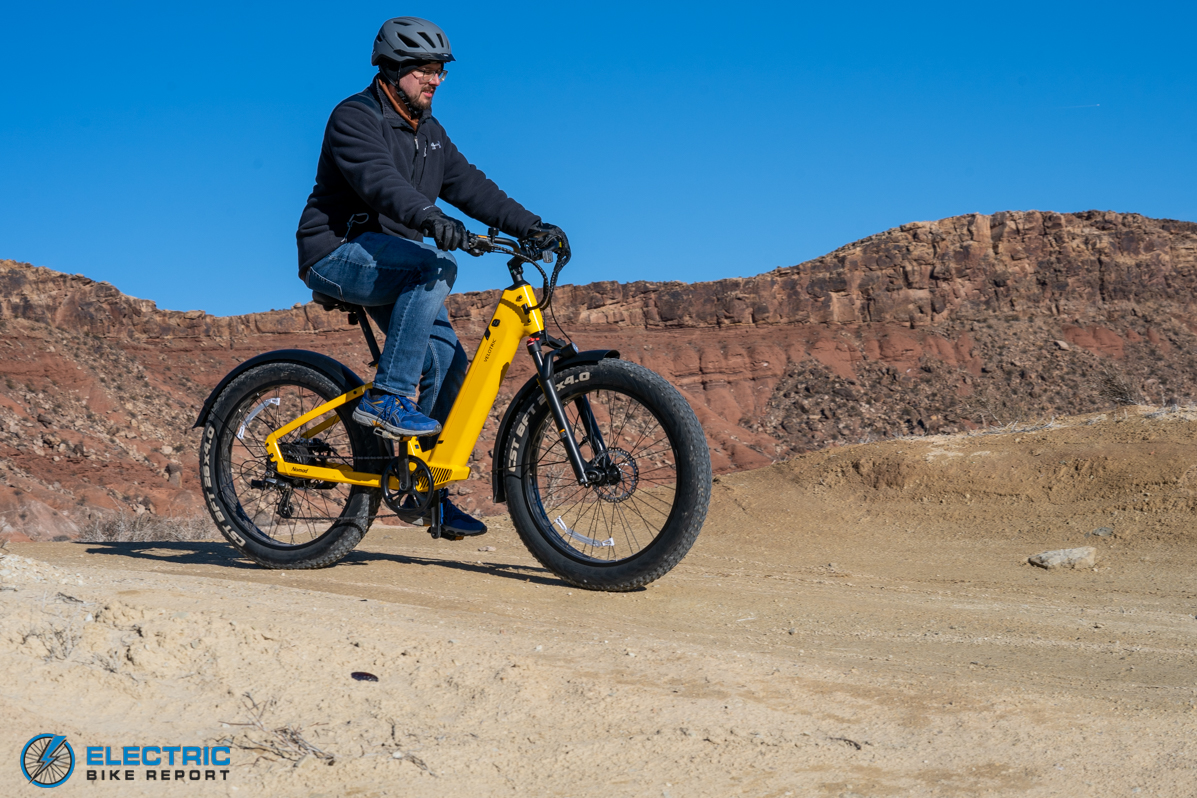Will E-Bikes Replace Cars?
Continued Growth in Manufacturing and Infrastructure Sparking an e-Bike Revolution

Now while it may not be for everybody to swap out car keys for a bike helmet, it is easier than ever to reduce your dependence on cars for travel and spend more time on e-bikes. Let’s take a look at a couple of the leading reasons people are replacing their cars with e-bikes.
Cars Aren’t Cheap, While E-Bikes Are Becoming Even More Affordable
When factoring the cost of buying a car, as well as maintenance, insurance, registration, and fuel, we find that car use along with the cost of housing, food, healthcare, and entertainment, more people are discovering the benefits of replacing their car with an e-bike. Most business analysts predict a coming boom in electric bike sales, with most being used to replace cars for local transportation.
For some car users, switching to an electric bike is not an option, either due to their proximity to their job and daily amenities, or physical limitations. But for many people, automobile commutes are short enough for e-bikes to replace the car.
Owning and driving a car is the second-most expensive cost for most people, behind the cost of housing. The Kelly Blue Book average price for a car in 2023 is $47,000. Compare that with the US median wage of $54,132 (according to the US Bureau of Labor Statistics), and that’s 87% of a person’s average yearly income (which explains why folks have to finance over 5 – 6 years). The Automobile Club of America found that the average cost of maintaining a car is $9,660 per year. That’s right, cars aren’t cheap!
Why are e-bikes becoming more affordable? Like most other new products, e-bikes are becoming cheaper because manufacturers are learning how to build e-bikes faster, more efficiently, costing them less per unit, and developing sustainable methods.
Deloitte, a global business consulting firm, predicts over 40 million e-bikes will be sold globally in 2023, generating $40.16 billion. They also predict annual growth of 12.6%, to $92.19 billion, by 2029. More manufacturers, with large capital resources and a high talent base in research and development, are streamlining production to reduce costs and build better e-bikes.
Some automobile makers, like Prosche and Ford, see the potential rewards of horizontal integration by adding e-bike production to their base. Both carmakers have been acquiring e-bike companies, mainly to add to their talent base new employees who are experts at e-bikes. Within the coming years we may not see the Ford and Porsche name on a lot of e-bikes, but we can be sure they probably own the company names you will see.
Add to that existing large global bike makers, like Specialized and Giant, and the chances are most of the popular affordable e-bikes will be coming from those companies. The important things these companies will bring to the e-bike world are 1) technical advances, and 2) lower costs to consumers.
Compare the price of owning a car with the price of an e-bike – roughly $1200 – $1800 for a good quality e-bike – and it makes more sense how an e-bike fits in most people’s budget. For people who still cannot afford an e-bike, there is assistance available from local governments and non-profit organizations.
Greater e-Bike Access Through Local Governments and Organizations
With the world reopening in the post-pandemic era we see increased use of fossil fuels. Even with the recent inroads we’ve made electric cars and solar panels, global air quality is worsening. The United Nations predicts a 10.6% increase in global air pollution between 2023 to 2030. State, local and federal agencies across the US are scrambling to find ways to respond to our air quality crisis.
State and local governments see electric bikes as part of the solution for dealing with traffic issues and air pollution. Many are encouraging people to buy e-bikes by offering vouchers and tax rebates. Elected officials across the country are openly stating that it’s cheaper and easier to add bike lanes and help people buy electric bikes than any other alternative.
As more Americans discover the benefits of riding their e-bike to work, school and shopping, more cities and states are going to see the benefits of investing in more e-bike friendly infrastructure. Greater infrastructure means more bike trails, e-bike charging stations, and more convenience getting around town on your e-bike instead of using a car.
We have seen an increase in electric cars in the US in recent years, but there is a huge affordability gap between electric cars ($66,000 average, according to Kelly Blue Book) and e-bikes ($2000 average, according to Consumer Reports). On the one hand, consider how electric cars require insurance, and license to drive, and are very expensive to maintain. On the other hand, electric bikes cost less than $400 per year to maintain and charge, and do not require insurance or a license, meaning almost anyone can ride an e-bike. Therefore, one could argue that eventually we will likely see more e-bike charging stations than electric car charging stations.
The Exercise Benefits of Riding an e-Bike vs Driving a Car
Besides enjoying significant financial savings by swapping your car with an electric bike, you will also reap the rewards of better physical and mental health through e-biking instead of driving.
In a 2017 report from Clean Technica, people who replaced their car with an e-bike for local transportation traveled up to 8.8 miles per trip, burn up to 600 calories per hour, and getting the necessary 60 minutes per day of elevated cardiovascular activity we all need for sustaining good health.
Countless health studies also confirm that people who get at least 120 minutes of outdoor activity per week experience significant improvements in mental health, weight management, reduced risk of heart disease, stronger bones and muscles, and greater ability doing everyday activities. You simply cannot get the same health benefits from driving an automobile during that same amount of time.
Making the e-Bike Choice
Looking at the exorbitant costs of owning a car, and the ongoing problem our world is facing air pollution and traffic gridlock, as well as our continued need for exercise, you can see how switching from a car to an e-bike is a solution most of us should choose – the benefits are tremendous!
The habit of using a car to meet all our transportation needs is like any other habit a person decides he/she needs to change. The decision to replace your car with an e-bike is a personal choice that has the potential of bringing positive change to your life. The rewards outweigh the presumed sacrifices by a very large margin. So, if you aren’t already part of the e-bike revolution, but you’re thinking of riding more and driving less, make sure to check out some of our in-depth e-bike reviews to help find the right one for you. Thanks!





I’ve been car-free since July 2021, using my bicycle for transportation. A recent foot injury had me looking for alternatives because I couldn’t ride my bike as often or as far as I wanted.
My research turned my attention to e-bikes. In September 2023, I purchased an e-bike and LOVE it!
Dan, Thanks for responding! That’s awesome to hear (we hope your surgery went well!). Feel free to keep posting and keep riding!